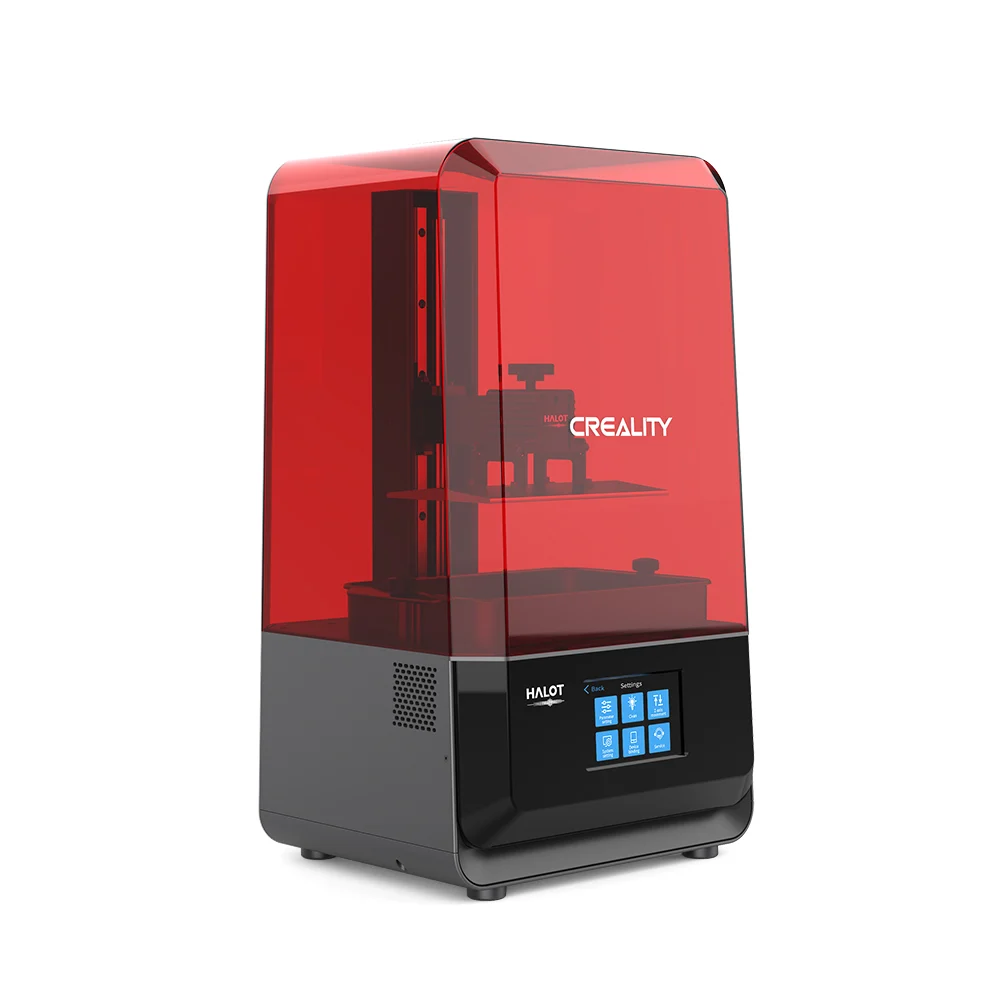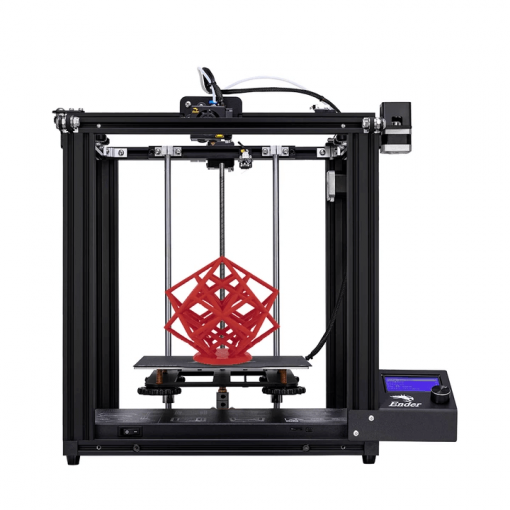Compare Halot Lite vs Ender 5
Comparison between the best 3D printers
Choose the best 3D printer at the best price. The cheapest 3D printers are here.
Buy a 3D printer here with 3D Fila.
 |
 |
|
| Model | Halot Lite |
Ender 5[BUY Ender 5] |
| Printing Material | Resin | Filament |
| Buy Resin for Creality 3D Halot Lite | Buy Filament forCreality 3D Ender 5 | |
| Estimated price | $400,00 | $399,00 |
| Manufacturer | Creality 3D | Creality 3D |
| Release Year | 2021 | 2020 |
| Print Volume [mm] | 192x120x200 | 220x220x300 |
| Printer Size [mm] | 330x301x572 | 485x510x552 |
| Weight [kg] | 10,6 | 11,8 |
| Power Loss Recovery | NO | YES |
| Maximum Resolution [mm] | 0,01 | 0,1 |
| Processor | 32 bits | |
| Display | Display touchscreen 5'' | Mono |
| Power Supply | 24V / 360W | |
| Connectivity | SD / USB | SD / USB |
| Operating systems | Windows, Mac, Linux | Windows, Mac, Linux |
| Date of registration in the system | 2022-11-04 | 2021-04-15 |
| Release date | 2021 | 2020 |
| Extra features | Crealitys Halot Lite printer stands out in the mid-size resin 3D printing segment, with a build volume of 192 x 120 x 200 mm and 50 micron resolution. It offers a monochrome LCD for fast and durable printing, and an upgraded light source that ensures over 80% uniformity across the print bed. It includes Wi-Fi connectivity for remote control and updates, an ARM Cortex CPU for efficient performance, and is compatible with Halot Box and Lychee slicing software. It also has an activated carbon filter to reduce odors. | Crealitys Ender 5 stands out with a solid frame and a larger 220 x 220 x 300mm print volume. Its assembly is simple and quick, offering high print quality and speeds of up to 80mm/s. With a magnetic bed, it makes it easy to remove prints. Notable for being hackable and expandable, the Ender 5 continues Crealitys innovative tradition in the affordable 3D printer market. Equipped with a 350W/24V Meanwell power supply, it heats up quickly, in addition to having efficient cable management and modified Marlin firmware. Its unique design includes dedicated stepper motors for each axis and smooth movement on the Y axis, providing more consistent and detailed prints. |
| Support for multiple colors and materials (AMS and CFS) | NO | NO |
Notes * |
||
| Cost-benefit | 8 / 10 | 7 / 10 |
| Hardware | 1.2 / 10 | 1.5 / 10 |
| Tela | . | . |
| Print volume | 3 / 10 | 3 / 10 |
| Performance | 9 / 10 | 1 / 10 |
| [BUY Ender 5] |
Conclusion |
| In comparing the Halot Lite and the Ender 5 3D printers, both manufactured by Creality 3D, we see distinct advantages and disadvantages that cater to different user needs and preferences. The **Halot Lite** is a resin printer that excels in print quality, featuring a maximum resolution of 0.01 mm. This is ideal for users who prioritize detail and precision in their prints. With a compact build volume and advanced features like Wi-Fi connectivity and an activated carbon filter for odor reduction, the Halot Lite is designed for streamlined and efficient printing. However, it lacks power loss recovery, which could be a dealbreaker for some users concerned about print interruptions. On the other hand, the **Ender 5** is a filament printer that offers a larger print volume, making it suitable for bigger projects. It boasts a solid frame design and a reputation for reliability, alongside features like quick heat-up time and ease of assembly. While its resolution is lower at 0.1 mm, it compensates with an ability to handle a variety of materials and the potential for upgrades and modifications, appealing to hobbyists who enjoy tinkering with their equipment. In terms of pricing, both printers fall within a similar range, though the precise value may slightly differ. The Halot Lite shines with performance metrics but has a smaller print volume and fewer features compared to the versatile Ender 5, which offers more flexibility and accessibility for a broader range of users. Ultimately, the choice between the two depends on the user’s specific printing requirements—if high precision and smaller prints are paramount, the Halot Lite is ideal. Conversely, if larger projects and reliability are priorities, the Ender 5 is the preferable option. Each printer provides excellent value for its intended purpose, underscoring the importance of aligning the printer selection with personal printing goals. |

